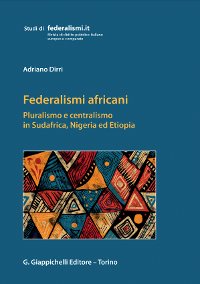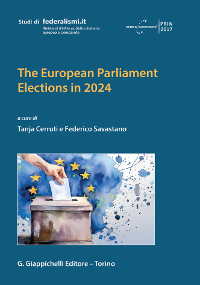
FOCUS - Comunicazioni, media e nuove tecnologie N. 1 - 04/03/2016
Towards an Internet Bill of Rights
This work seeks to spark some questions about what rules might be set up for the Internet and what the goals of these rules should be. The first question examined is whether a binding regulation of the Internet is required. This debate is mainly propelled by the American doctrine,a doctrine divided between the champions of unchecked self-regulation – drawn by the network providers themselves– and those in favour of an absorbing intervention by an authority. The second question explored is whether a binding regulation would require a formal modification of national Constitutions eschewing any reference to the Internet. This article intends to detail and explore a third alternative: the proposal of a specific and supranational “Bill of rights” for the Internet. This proposal prompts further questions: which legislative body should write this Bill? What should the relationship be between binding rules and the policies of self-regulation? What kind of content would be appropriate or necessary to put in the Bill? Should the Bill give greater weight to fundamental rights than to economic interests? Should supra-national case law be a contributing source to the Bill, and if so, to what extent? To answer these questions, I will not simply tackle a single freedom concerning netizens. This article’s analysis will instead focus on the basic need that fundamental rights, normally protected by national constitutions, should receive universal protection regardless of its territorial boundaries, in accordance with the aterritorial nature of the Internet. Therefore, rather than focusing on specific rights, whether they be freedom of expression, communication, or the right to access the Internet, this article intends to propose the essentials of a statute for fundamental rights, one that is sufficiently general to encompass every freedom, regardless of its specific features. This statute should also be supranational so that every freedom is consistent regardless of the variances in different nations. This would also ensure equality of treatment. National instances have given rise to a fragmented and irregular juridical mosaic. Since national legislations are primarily based on the specific problems of each legal system and tradition, they therefore vary in scope and content. The U.S. juridical tradition, for instance, has given particular relevance to some norms that help set the boundaries for public powers on copyright law. In the U.K., this same problem has been tackled by essentially looking at the relationships between soft law and binding rules in order to affirm the primacy of a binding framework, in particular, a new copyright concept well-suited to the digital age. In France, in the absence of more comprehensive rules, the attention of then-President Sarkozy turned toward the publishing interests of record and film companies, which led to a legislation in 2009 that primarily focused on creating stringent copyright protection. In Italy, a substantial lack of legislative attention on Internet-related issues has been superseded by a very controversial initiative by the competent national Authority. Finally, the European Court of Justice has extensively used the European Union Regulation on E-Commerce addressing the issue of Internet Service Provider accountability. These instances clearly prove the existence of an uneven framework born out of occasional pressures and initiatives. This further underlines the necessity of general regulations that extend beyond both national boundaries and the sectional interests prevailing in any given moment. A comprehensive view of the possible answers will support the assertion that all technical issues concerning the Internet cannot be left to the invisible hand of a market-oriented technological development, rather, it should be goal-oriented towards achieving a common good. Should this happen, the Internet would finally be a unique and effective opportunity for everyone to pursue personal growth and participation in the virtual political process. Such an outcome, however, can only be ensured through clear choices made by policymakers and netizens. To outline which choices should be adopted, and how they should be adopted, is the main goal of this article... (segue)
NUMERO 5 - ALTRI ARTICOLI
-
ITALIA - DOCUMENTAZIONE
Note redazionali
ITALIA - DOCUMENTAZIONEFocus sulla Riforma costituzionale
-
ITALIA - DOTTRINA
La liberalizzazione del trasporto ferroviario
ITALIA - DOTTRINATrasparenza della P.A. nella riforma Madia
-
ITALIA - DOTTRINA
Gli organici nel riassetto delle province
ITALIA - DOTTRINATowards an Internet Bill of Rights
Execution time: 30 ms - Your address is 216.73.216.47



 Registrati
Registrati Login
Login
 Territorio e istituzioni
Territorio e istituzioni Africa
Africa Osservatorio di Diritto sanitario
Osservatorio di Diritto sanitario Osservatorio sul diritto elettorale
Osservatorio sul diritto elettorale Human Rights
Human Rights Storico focus
Storico focus Riforme istituzionali e forma di governo
Riforme istituzionali e forma di governo Lavoro Persona Tecnologia
Lavoro Persona Tecnologia America Latina
America Latina Osservatorio Trasparenza
Osservatorio Trasparenza Scarica il Documento integrale
Scarica il Documento integrale
 STUDI FEDERALISMI
STUDI FEDERALISMI





21/11/2016
04/03/2016
28/09/2015
29/05/2015
27/02/2015
24/11/2014
19/09/2014
10/06/2014